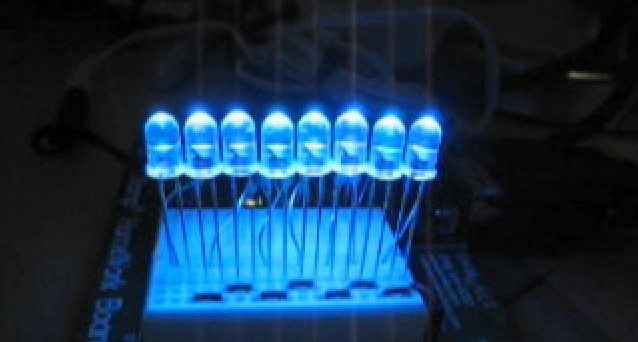The Nobel Prizes 2014: Lighting the world with LEDs
Three Japanese inventors – Isamu Akasaki, Hiroshi Amano and Shuji Nakamura – have been awarded this year’s Nobel Prize in Physics for creating the blue light emitting diode (LED).
Today, white LED lamps form an integral part of our daily lives. Found in smartphones, computers, light bulbs and more, white LEDs emit light that is brighter and more energy-efficient that filament-based bulbs.
Conventional light bulbs use electricity to heat up a filament to thousands of degrees Celsius. At such a high temperature, the filament starts to glow but only around 10 percent of the total energy output of the light bulb is visible light.
LEDs, on the other hand, are made of semiconductor material which spontaneously emits light when an electric field is applied. The exact colour of the LED will depend on the exact semiconductors used.
To produce pure, white light, LED lamps combine light of three colours: red, green and blue. Alternatively, Blue LEDs can also be used to excited phosphorus, a process that directly produces white light. This method will potentially be the basis of next-generation light bulbs.
Though red and green LEDs have existed since the 1950s, a stumbling block was hit when researchers tried to create a blue LED.
In the 1990s, Akasaki and Amano, then of Nagoya University in Japan, collaborated with Nakamura, an engineer employed by Japanese company Nichia Chemicals. Together, the trio developed a semiconductor made from gallium nitride that emits blue light. Their invention meant that it was suddenly possible to make white light in a new, longer-lasting way.
“The invention of the blue LED is just twenty years old, but it has already contributed to create white light in an entirely new manner to the benefit of us all,” says the Royal Swedish Academy of Sciences, who awarded the prize.

Comments